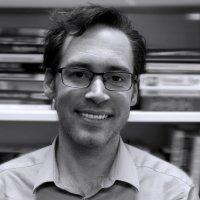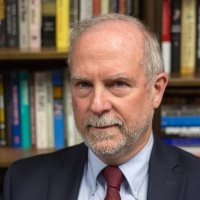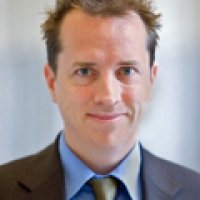Restricted Data: The History of Nuclear Secrecy in the United States
The American atomic bomb was born in secrecy. From the moment scientists first conceived of its possibility to the bombings of Hiroshima and Nagasaki and beyond, there were efforts to control the spread of nuclear information and the newly discovered scientific facts that made such powerful weapons possible. The totalizing scientific secrecy that the atomic bomb appeared to demand was new, unusual, and very nearly unprecedented. It was foreign to American science and American democracy—and potentially incompatible with both.
From the beginning, this secrecy was controversial, and it was always contested. The atomic bomb was not merely the application of science to war, but the result of decades of investment in scientific education, infrastructure, and global collaboration. If secrecy became the norm, how would science survive? Drawing on troves of declassified files, including records released by the government for the first time through Wellerstein’s efforts, Restricted Data traces the complex evolution of the US nuclear secrecy regime from the first whisper of the atomic bomb through the mounting tensions of the Cold War and into the early twenty-first century.
Alex Wellerstein is a historian of science and nuclear technology. He is a professor at the Stevens Institute of Technology in Hoboken, New Jersey, where he is the Director of Science and Technology Studies in the College of Arts and Letters. His first book, Restricted Data: The History of Nuclear Secrecy in the United States (University of Chicago Press, 2021), is the first attempt at a comprehensive history of how nuclear weapons ushered in a new period of governmental and scientific secrecy in the USA. His writings on the history of nuclear weapons have appeared in The New Yorker, The Atlantic Magazine, Harper’s Magazine, and the Washington Post, among other venues, and his online nuclear weapon effects simulator, the NUKEMAP, has been used by over 25 million people globally.
The Washington History Seminar is co-chaired by Eric Arnesen (George Washington University and the National History Center) and Christian Ostermann (Woodrow Wilson Center) and is organized jointly by the National History Center of the American Historical Association and the Woodrow Wilson Center's History and Public Policy Program. It meets weekly during the academic year. The seminar thanks its anonymous individual donors and institutional partners (the George Washington University History Department and the Lepage Center for History in the Public Interest) for their continued support.
Speaker

Moderators


Professor of History, The George Washington University. Director, National History Center of the American Historical Association.
Panelists

Arizona State University

Columbia University
Hosted By

History and Public Policy Program
A leader in making key foreign policy records accessible and fostering informed scholarship, analysis, and discussion on international affairs, past and present. Read more


Nuclear Proliferation International History Project
The Nuclear Proliferation International History Project is a global network of individuals and institutions engaged in the study of international nuclear history through archival documents, oral history interviews, and other empirical sources. Read more
